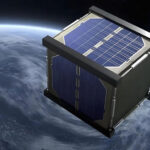Household air heat pump does produce noise when running, its main source is the compressor motor and wind blade, there are differences in the noise level of different brands and models of household air heat pump. In general, the noise value of the air heat pump shall not exceed 55dB, which is about the sound of a computer mainframe running, and will not affect normal life at all.
The reason for the noise:

- Compressor noise
The compressor is the core component of the air energy heat pump, responsible for compressing and circulating the refrigerant. Latest advancements in compressor technology aim to reduce noise levels significantly. Due to its high-pressure, high-temperature nature of operation, the compressor generates significant noise during start-up and operation. Particularly when operating at high loads, such as in winter or at low temperatures, the heat pump requires additional energy to heat the water, which causes the compressor to be under high load for a long period of time, with a consequent increase in noise. In addition, the compressor needs to overcome static friction during start-up, and the noise generated is particularly noticeable at this time, usually giving a sudden ‘roar’. - Fan noise
Heat pumps are usually equipped with an external fan to improve air flow and heat dissipation. The main source of fan noise is the sound produced by the fan when it is running at high speeds, especially under high loads or extreme weather, when the fan speed increases significantly. In addition, the design of the fan blades can also affect the noise level. If the design of the fan is not scientific enough, it may result in poor air flow, which may emit additional noise and increase the overall operating sound of the equipment. - Vibration
Vibration of the equipment not only affects the operating efficiency of the heat pump, but may also increase noise. Reasons for vibration include improper installation or an unstable foundation. If the foundation of a heat pump is not smooth, or if it is installed without the use of vibration damping pads, it may cause the equipment to vibrate more during operation. These vibrations can be transmitted to the floor or walls through the support frame, causing additional noise and affecting the quietness of the surroundings. - External environment
The external environment can have a significant effect on the transmission of noise. If the heat pump is installed close to a window or wall, the sound is easily reflected, thus causing the noise to appear louder. In addition, the surrounding environmental materials (e.g., metal, concrete, etc.) will also enhance the propagation of sound, creating a resonance phenomenon. If there are other mechanical devices nearby (e.g. air conditioners, refrigerators, etc.), this may also cause a superimposition of noise, making the operating sound of the heat pump more noticeable. - Ageing of equipment
As equipment is used for longer periods of time, the noise usually becomes louder. Components in older equipment may show wear and tear, especially compressors, fans and other moving parts, which can affect normal operation and increase operating noise. At the same time, aged lubricants may deteriorate, leading to increased friction and further increasing noise. Therefore, regular inspection and maintenance of the equipment is very important to help keep it in good condition and reduce noise. - Air flow problems
Poor air flow can lead to improper operation of the equipment, which in turn can lead to noise problems. For example, a filter that is clogged with dust and dirt requires more force from the fan to maintain air flow, resulting in more noise. In addition, poorly designed pipework in heat pumps can also lead to blocked airflow, affecting the operating efficiency and noise level of the equipment. Therefore, maintaining airflow is key to ensuring efficient and quiet operation of the equipment.
Noise reduction methods:

- Reasonable installation location
Installing the household air energy heat pump unit in the basement ventilation, on the roof of the building or far away from the housing is an effective way to reduce noise. These locations are usually far away from bedrooms and living areas, which can reduce noise interference with residents’ lives. If they are close to bedrooms or living areas, you can consider installing soundproof walls or machine rooms. In addition, for all-in-one air energy heat pump, it can be more flexible in choosing the installation location due to its better sealing and lower noise during operation. - Check the installation of the unit
Regularly checking the installation of the air source heat pump unit is also an important measure to reduce noise. When checking, you need to make sure that the unit is installed smoothly, the screws are not loose, and there is no vibration in the host. If you find that the unit is not installed smoothly or the screws are loose, you should adjust and tighten them in time to reduce the vibration and noise. In addition, shock pads or shock absorbers can be installed under the unit to further reduce vibration and noise. - Choose high-quality components
Motor and fan are important parts of the air energy heat pump unit, choosing good quality motor and fan can reduce the noise from the source. High quality motors and fans usually have better balance and stability, and run with less noise. In addition, you can also choose low-noise fan blades and motor casing to further reduce noise generation. - Installation of silencing cotton
Users can install their own sound damping cotton to reduce the noise of the household air heat pump, in the addition of sound damping cotton, you need to choose a good quality, high density of the sound damping cotton, and will be installed in the appropriate location. For example, the sound damping cotton can be installed around the compressor, fan and other noise sources, or installed inside the housing of the residential air heat pump.
Although the noise problem of household air heat pumps exists, through proper installation and use as well as effective noise reduction measures, we can control the noise within a reasonable range to ensure that it does not affect normal life.












